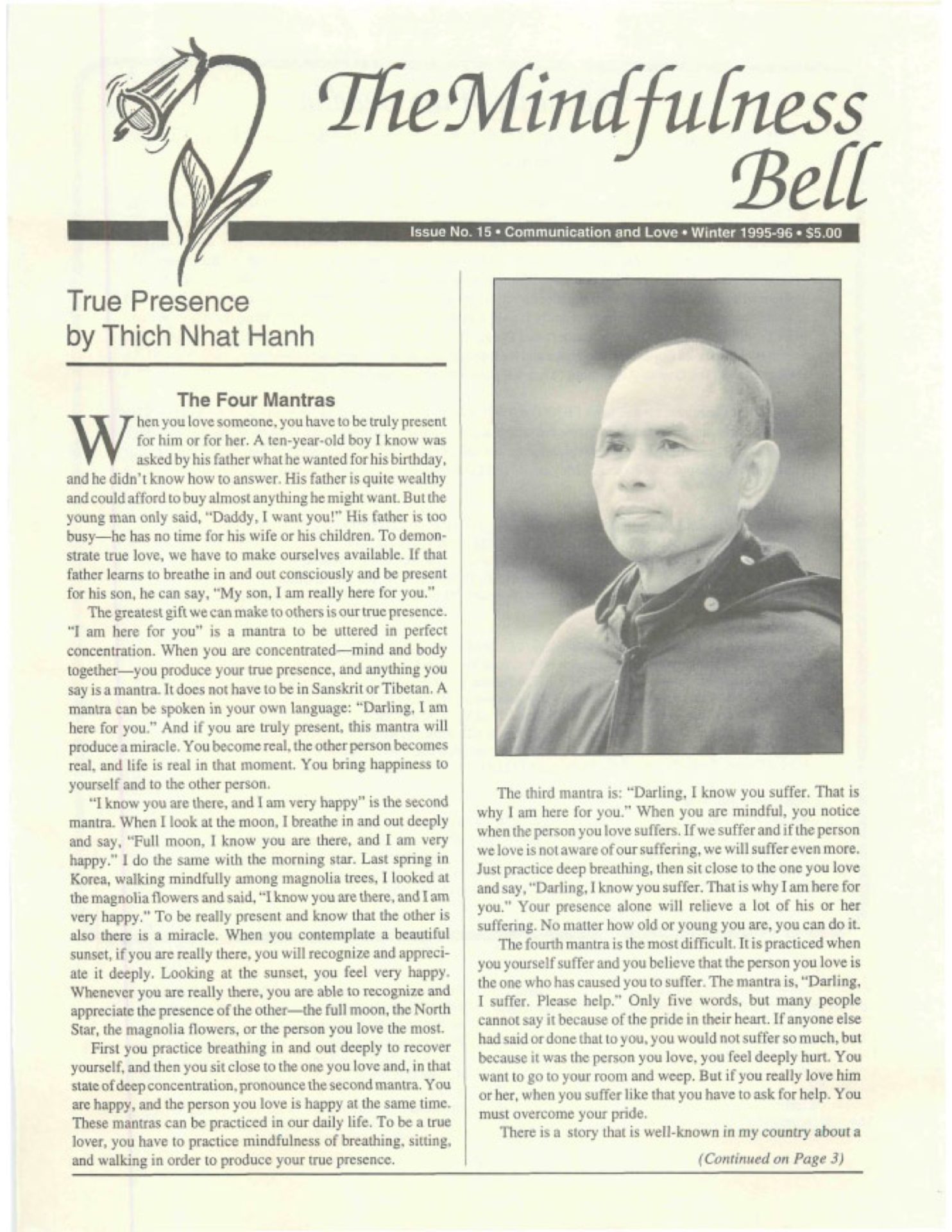By Robert Reed
I am not always mindful while driving the car, but on this particular morning when I cheated death, the radio was off and I was consciously following my breath, alert to the conditions of the road.
As I headed to work in rush hour traffic at 60 miles per hour, a large white car abruptly changed lanes and crashed into me. No warning and thankfully no time to panic. My car spun out of control and careened across two lanes of traffic (Relax,
By Robert Reed
I am not always mindful while driving the car, but on this particular morning when I cheated death, the radio was off and I was consciously following my breath, alert to the conditions of the road.
As I headed to work in rush hour traffic at 60 miles per hour, a large white car abruptly changed lanes and crashed into me. No warning and thankfully no time to panic. My car spun out of control and careened across two lanes of traffic (Relax, I said to myself). I was then perpendicular to oncoming traffic in the far left lane (the fastest one) and yards away from crashing headlong into a cement wall when I was hit again broadside directly at the driver's door. My Toyota flipped over and then there was complete silence. I wondered if there were going to be more crashes or if the amusement ride was over.
A cool, eerie pain on the top of my head made me feel as if I had just been scalped. I was afraid to touch. I remember seeing the shattered glass of the window scattered on the highway. I spit glass, wondered about the extent of my injuries, and watched my legs shake uncontrollably from cold and fright. I tilted my head back on the headrest, closed my eyes, followed my breathing, and waited for the ambulance to arrive.
That my seat belt saved my life was undisputed. What caused unanimous amazement to the State Troopers, ambulance drivers, and the Emergency Room doctor was that I escaped relatively unharmed. Six stitches for a laceration to the skull, a too-small-to-complain-about scrape on the left shoulder, and not one bruise. The car, however, was totaled.
Incredible luck, the gods' smiling graces, and maybe my relaxed body also helped prevent injuries. I've heard that drunks fare better than sober people in accidents due to the fact they do not tense up. Perhaps my meditation that morning just minutes before kissing my wife good-bye helped save me.
Impermanence is one of the articles of faith in Buddhism. That all things change and die is easy to accept philosophically, but when, at mid-life, you are thrown face-to-face with your own imminent death, it finally dawns on you—I too am impermanent! We delude ourselves by thinking that death occurs to others but for ourselves some time in the distant future. We want to forget that death can come to us unexpectedly—even today!
Life is precious and precarious. Accidents wake you to this. I overheard my wife tell friends the next day that, while she gave me a massage, she whispered a prayer of thanks as she touched each bone, muscle, and limb—she was so grateful I was all in one piece and alive.
For a week afterwards, we were especially close. Now the strain of everyday living threatens to dull our senses once again. Our inability to appreciate imminent impermanence is the cause of much suffering. If life is short, then the day-to-day details, such as how we talk to each other, matter the most. Moments of clarity and appreciation come through our practice Reserving a time for sitting meditation every day helps keep us from taking our own and each other's lives for granted and helps sustain us.
A second grade student of mine sent a get-well card, "Don't do that again!" That is sound advice. Yet, if I were able to practice the way of awareness more often and thus be more alive, I would like to think that when death does catch up with me, it will not be altogether unwelcome.
I escaped this mishap. Many are not so lucky. One of my closest friends died in a sailing accident 20 years ago. I've now lived twice as many years as he did. Miraculously, I was granted just a little more time on this earth. It is my hope that I will live less on automatic pilot, more attuned to the bare essentials, more loving and accepting, less critical and judgmental. Fortunately, major life traumas do not happen to us nor our loved ones every day. But when they do, I think we grow stronger if we listen deeply to what they have to say.
Life is a gift—not just for newborn babies and people who "pull through"—but for everyone. Continuously, we are given life anew. Our challenge is to awaken to and celebrate the everyday wonders.
Robert Reed teaches English as a Second Language to Hmong students in Minneapolis, Minnesota, and practices at Minnesota Zen Meditation Center.

